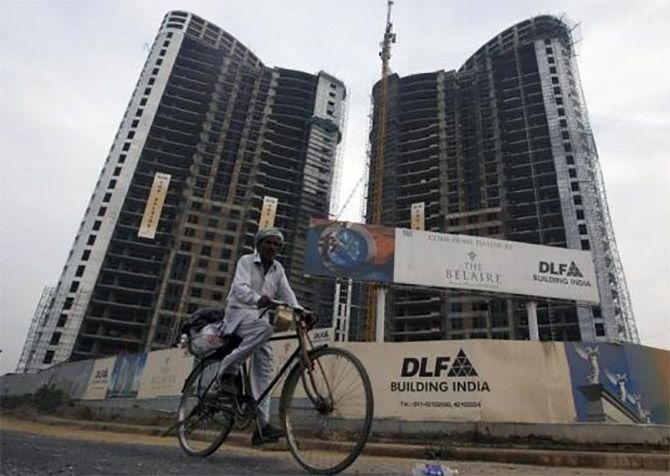
DLF has long been embroiled in a controversy over a deal that brought windfall profits to Robert Vadra, son-in-law of United Progressive Alliance Chairperson Sonia Gandhi.
The Haryana government provided real estate giant DLF Limited gains worth hundreds of crores of rupees through the allotment of prime property in Wazirabad village of Gurgaon in 2010 by twisting norms of allotment in the company's favour, according to documents reviewed by Business Standard.
The Wazirabad allotment was struck down by the high court of Punjab and Haryana on September 7 and has subsequently been challenged in the Supreme Court by the state authorities. But the large concessions made to DLF have not been brought to light in the judgment.
DLF earlier this week was banned by the Securities and Exchange Board of India (Sebi) from accessing the capital markets for three years, because the regulator ruled it suppressed material information during its initial public offering.
The company has for long been embroiled in a controversy over a deal that brought windfall profits to Robert Vadra, son-in-law of United Progressive Alliance Chairperson Sonia Gandhi.
The Haryana government first put out an international bid for the land parcel, falling in sectors 42, 53 and 54 of Gurgaon in 2009.
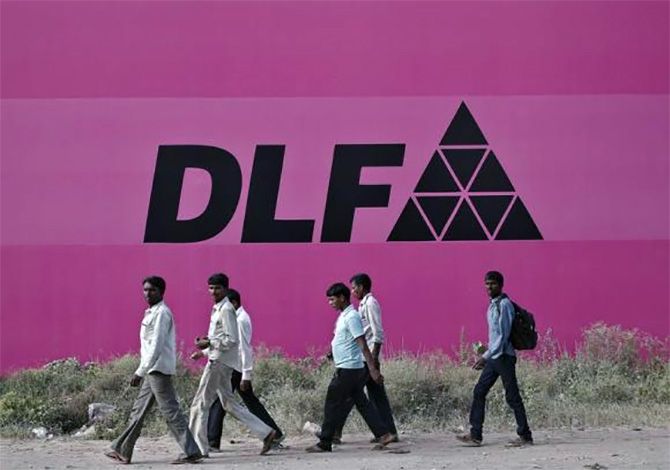
The plot was to have an international level golf course, a five-star hotel, golf villas, banquet halls, and business centres and other facilities.
The parcel included land classified as forest land under Supreme Court orders, which could be used for construction only after clearance from the Union government.
The state government set the reserve price at about Rs 1,700 crore (Rs 17 billion) arising from the calculated rate of Rs 11,978 per square metre.
Only one company, DLF, put in a bid. Its offer was very close to the reserve price, Rs 12,000 per square metre or Rs 1,703 crore (Rs 17.03 billion). But DLF also requested concessions that included lowering the reserve price.
The state decided to go for rebidding with some changed conditions. An additional area of 54.6 acres with a floor area ratio (FAR) of 175 was allowed for residential construction out of the green lands.
But this patch fell in an area classified as forest land. In a departure from the first tender, the state government promised to get clearance from the Centre to open the forest land for construction.
The Haryana government decided that if the Supreme Court did rule against the use of land, any company holding land in the even more lucrative parts of the Gurgaon-Manesar area could actually make a bigger profit by building more houses for sale there.
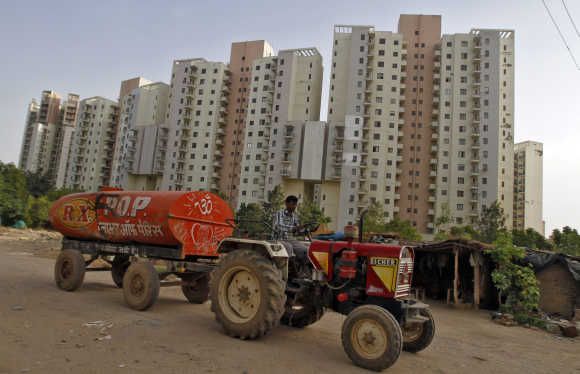
This provision clearly benefited developers who held other pieces of land in the belt. DLF was and continues to be one of the leaders.
This was not all. Even though the total area permitted under residential construction had been increased by 54.6 acres, the reserve price was maintained at Rs 1,700 crore. The increase in price for turning green land into an additional residential zone was not recalculated.
The greens were priced at Rs 1.44 crore (Rs 14.4 million) per acre but the residential land had been assessed at Rs 10.89 crore (Rs 108.9 million) per acre. According to the state government's calculations of price for the residential zone for this parcel, the 54.6 acres were worth Rs 516 crore after the change in land use.
Business Standard sent detailed and specific queries to DLF. The company replied, "This was part of a global tender and we would not like to comment as the matter is sub judice."
Haryana State Industrial & Infrastructure Development Corporation did not reply to written and detailed queries sent by Business Standard.
Y S Malik, industry secretary for Haryana, dismissed any wrongdoing in the concessions provided by the government.
On the issue of the state not increasing the reserve price even while increasing the built-up residential area, Malik said, "This is hair-splitting. The price set for the residential area was anyway higher than it should have been. The bidder had warned of the financial viability of the project and asked for reducing the reserve price. But we decided to go for the same reserve price and try at least two times to achieve it." He said the collector rates used by the consultants, ILFS, were for developed land, whereas this parcel was raw land.
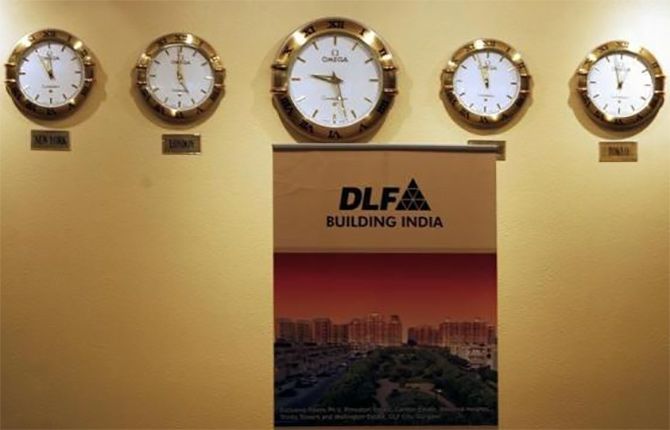
Malik also said the winning company would have to provide land for compensatory afforestation in lieu of the forest land at its own cost besides the bid money. The law does not require this compensatory land to be located in the prime real estate hot spot of Gurgaon. It can be anywhere in the state of Haryana.
In a second round of bidding, two additional developers put in proposals for the land, a consortium led by Country Heights Holdings Berhad of Malaysia and one by Unitech Limited. Both failed the technical qualifications the government had set. Malik said the other bidders had been disqualified on two technical grounds of not having experience in running golf courses and not having adequate net worth. There was more the state government was willing to do that would aid DLF.
The second tender had asked that the winner, after paying the first 25 per cent, deposit the remaining 75 per cent in 10 half-yearly installments with an 11 per cent interest rate after the letter of allotment had been received.
But the allotment letter to DLF, in contrast to the tender advertisement, delayed the date from which the interest would be computed.
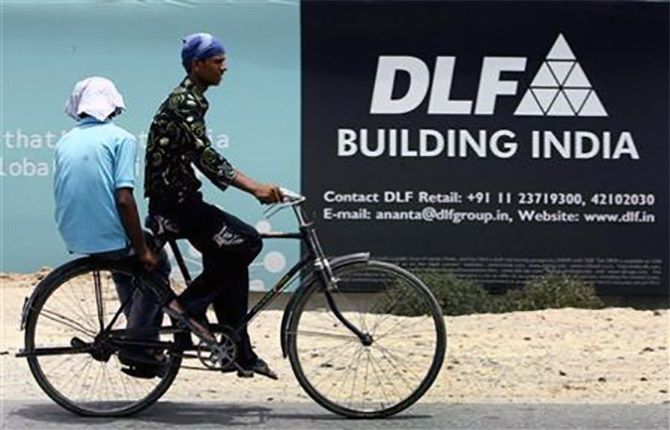
Instead of the date of allotment, the clock started from the date the company received approval for specific land uses, which included a Supreme Court order on use of forest land, even though the company stood to gain from an adverse order.
Thus, DLF effectively received an interest-free period on the due amount of Rs 1,277.5 crore (Rs 12.77 billion). The instalments became due starting August 2012. But with the change of terms, the company was required to pay no interest on the due amount; the state has lost an estimated Rs 500 crore (Rs 5 billion) from the interest forgone till date.
On the change in the date from which interest would be charged, Malik said interest could be charged only once the land permissions were available. Asked why this condition was not advertised at the time of tendering, he said he did not have access to the case papers and would not be able to comment.
In its judgment last month, the high court said of the overall price of Rs 1,700 crore being paid over a long period, "We find it difficult to approve out rightly the perpetual transfer of a huge chunk of 350 acres of prime land falling in the heart of the National Capital Region to a private enterprise, at a rate which, as a lump-sum sounds extremely 'credit worthy', but eventually does not even factor in the normal increase in price for a period of eight years. That is not something which we can over-look by any yardstick."











